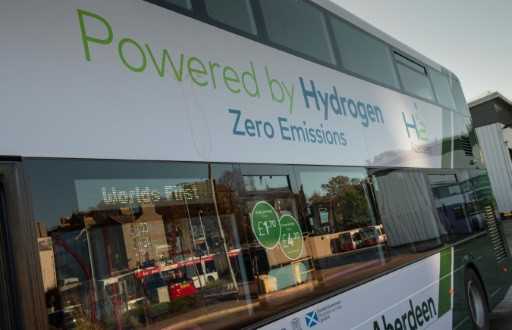Green hydrogen: A fuel bursting with climate-saving potential
13 December, 2020

In the battle against climate change, green hydrogen has been hailed as a potential miracle fuel that could help the world's worst-polluting industries slash carbon emissions.
Hydrogen itself may experience a good amount of uses, but governments and companies are increasingly turning their focus on how exactly to produce the reference in a climate-friendly manner to make it truly green.
Hydrogen can be an abundant resource that gives off no emissions when it's burnt due to fuel. No surprise governments and companies are falling over the other person to extol its virtues.
Its use as a good fuel for spacecraft has prompted many to tout it due to the future of the transport industry. European firm Airbus has said it wants to set the world's primary hydrogen-powered professional plane into assistance by 2035. Many significant automakers already manufacture versions employing hydrogen fuel cells.
Transport policymakers are acquiring note. Plans are afoot for hydrogen-powered trains in Germany and Italy.
In famously dirty industries, hydrogen is undoubtedly a particularly promising option to fossil fuels. Steelmakers like Germany's Thyssenkrupp are tinkering with creating hydrogen-powered furnaces.
A wide agreement exists that hydrogen fuel has huge potential benefits, but the method of creating it is still the subject of heated debate.
Scientists have got understood for years and years how hydrogen could be produced from normal water via a process known as electrolysis whereby a power recent is passed through water, splitting it all into hydrogen and oxygen.
But this technique requires power -- which now is still generated generally by burning coal and gas.
In line with the International Strength Agency, global hydrogen development emitted 830 million tonnes of CO2 in 2017 -- the equivalent of the mixed emissions of Indonesia and the uk.
Governments and companies are actually mulling three main alternatives to make the process cleaner.
The foremost is "green hydrogen", which uses electrolysis of water powered by renewable energy. This might reduce emissions nonetheless it remains very costly.
The next option is to acquire so-called blue hydrogen from natural gas, capturing the CO2 during the process. Firms incorporating ExxonMobil and ENI happen to be pushing for this, however the CO2 sequestration process remains to be uncertain and costly.
The third option is low-carbon hydrogen made by electrolysis but using nuclear electricity. China is certainly the main proponent of the method, with nuclear energy falling out of favor elsewhere on earth.
Governments are actually scrambling to frame plans encouraging the creation of clean hydrogen.
The EU really wants to achieve between 12 and 14 percent hydrogen in its energy mix by 2050, up from two percent today. The bloc estimates the required funding at between 180 billion euros ($218 billion) and 470 billion.
The Netherlands, Portugal, Germany, and France have all published hydrogen strategies over the past year. Germany possesses earmarked 9 billion euros for green hydrogen. HOLLAND is planning for a "Hydrogen Valley".
China is already a global leader found in hydrogen technology, with Australia, Japan, South Korea and the United States also pushing for a good slice of the hydrogen revolution.
Climate activists are actually urging countries to keep their feet on the floor about hydrogen.
"Not all tactics focus exclusively in green hydrogen, some involve hydrogen development from coal, gas, and nuclear," wrote the Environment Transparency group found in a written report in November.
"Nevertheless, developing hydrogen strategies and infrastructure is a good positive step towards zero-carbon hydrogen."
The falling rates of solar and wind strength and the increasing utilization of hydrogen could find its production costs slashed by 2050, relating to researchers BloombergNEF.
They estimate it could be produced for between $0.80 (0.66 euros) and $1.6 a kilogram by then, comparable to gas.
"Hydrogen can help to make a real contribution to the fight climate change, but only when it is utilized properly, found in areas where you have no other choices to lessen emissions," says Nicolas Berghmans in IDDRI, a think container that targets sustainable development.
He said that hydrogen, no matter how it really is produced, can only just achieve a limited sum. He said it should be portion of a broader global strength policy that as well acts to lessen consumption.
Source: japantoday.com
TAG(s):
